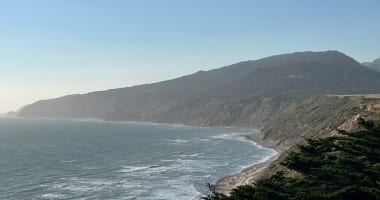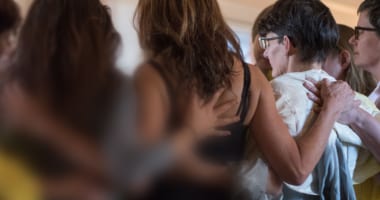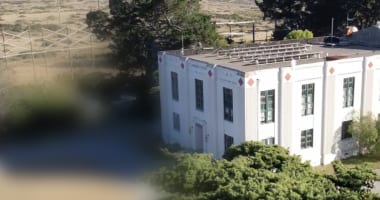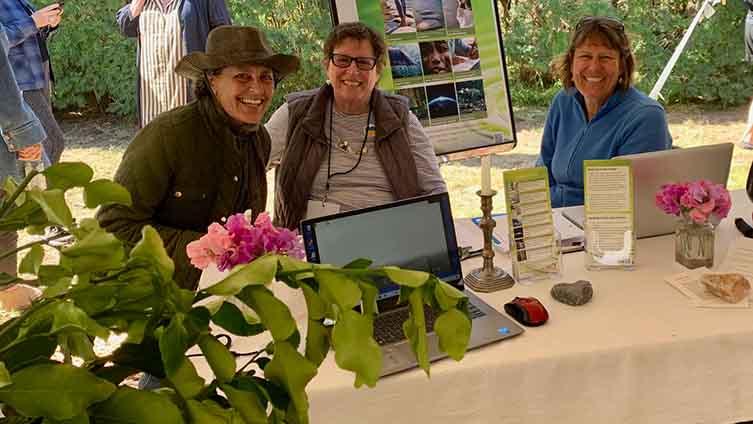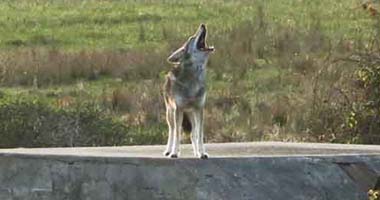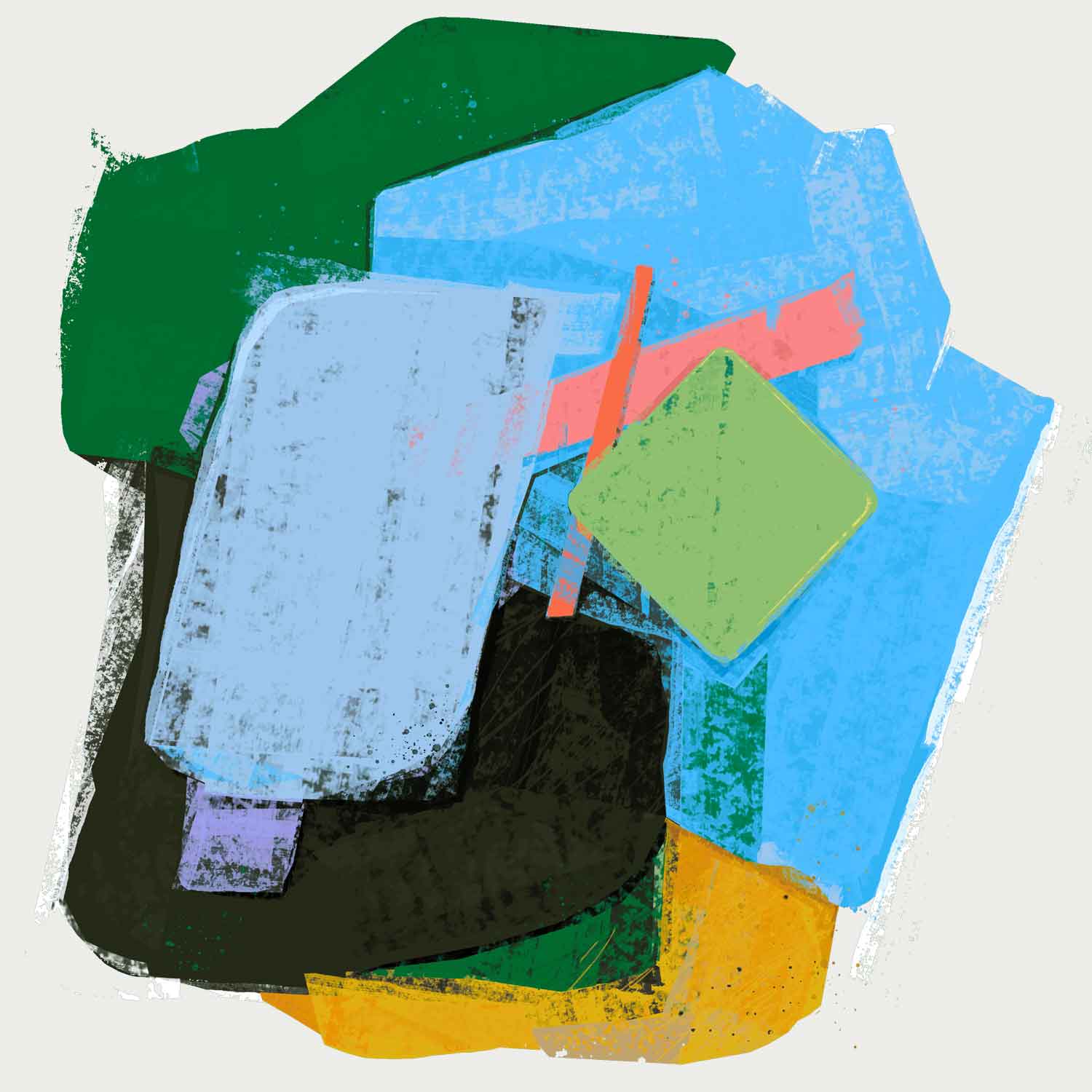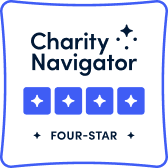Bringing Healing and Equity to Retreat Spaces
July 1, 2023
The Retreat Center Collaboration’s Racial Healing Initiative
The Masaya Volcano lies in west-central Nicaragua, in a place that reaches far back in time to Chorotega indigenous traditions. To the villagers around the volcano, Masaya is sacred—holding and protecting their farms, communities, and families. Brenda Salgado, program director for Commonweal’s Racial Healing Initiative, connects her lineage to the Masaya Volcano region, and she brings this unique indigenous world view with her to her work.
Bringing her whole indigenous self to the work she does with the Racial Healing Initiative is important to Brenda. Along with her team, she works with retreat center staff across the United States and Canada to explore areas that could bring greater inclusivity to land-based retreat center communities—communities that have traditionally been filled with mostly white participants. “In this time of shift and indigenous prophecy, I understand that healing with one another, with our ancestors, and with the land is the sacred work of our time," Brenda said. "I am so grateful to Creator, my ancestors and to the land for their support, patience and guidance and the deep sense of faith and belonging this brings me. This greater purpose and belonging, being a good relative, are what my ancestors understood as true wealth. I want this for everyone who is fortunate to visit one of these beautiful retreat centers and the land they exist on, especially those who have lost ancestral and land connection.”
The Racial Healing Initiative began about one and a half years ago, the creative product of (among others) Victoria Santos, founder of Commonweal’s Center for Healing and Liberation, and Ben Scott-Brandt, program director of Commonweal’s Retreat Center Collaboration. They worked together to develop this flagship program to help provide racial healing resources for retreat centers that are part of their collaborative.
“Retreat centers realize that they have work to do to meet the needs of new, diverse audiences,” Ben said. “They can’t just say, ‘all are welcome’—the culture and other things need to shift to make everyone feel welcome. The Racial Healing Initiative is a key part of this work: we need all voices, all perspectives to truly serve all. And to hear all voices, we need a lot of healing,” he said.
Since 2018, the Retreat Center Collaboration has been providing connection and peer learning for retreat centers across the country. Ben said that they realized fairly quickly that capacity-building support for racial equity practices and deep personal transformation within retreat center staff and leadership was something many of these organizations wanted and needed—but also something that wasn’t readily available in their peer group.With funding from the W. K. Kellogg Foundation, the Fetzer Institute, and the Hemera Foundation, the Racial Healing Initiative came together to offer facilitators and funds for training, technical assistance, and support to strengthen retreat centers’ capacity to be in alignment with their beliefs and values around justice and equity.
They hired Brenda Salgado as program director, who had been doing organizational consulting and working with nonprofit management, facilitation, mediation, and community health. What has developed over the last year and a half, Brenda said, are deep and growing relationships between retreat centers across the country, an ability to be resilient during transformation, and a deep acknowledgement of the next generation of BIPOC-led centers and what they have to teach other leaders.
“There are lots of programs out there that are very intellectual, but the Racial Healing Initiative is so much deeper than that: we’re building a community of practice,” Brenda said. “We’re thinking about racial equity from an embodied, ancestral and land healing perspective, and giving our retreat center staff some of the tools to be in these conversations at a deeper level,” she said.

So far, they have worked with six centers in an initial pilot program, are working with six more now, and hope to build out the program to reach even more retreat centers.
One of the retreat centers that were part of the Racial Healing Initiative's pilot program was the OMEGA Institute in New York. First they started relationship-building calls with OMEGA staff to see if there was alignment—then worked with them to develop deep listening sessions with staff and community members. Together, they thought about what racial healing would look like in their community. They held a three-day onsite workshop for the staff and community, bringing in consultants to help facilitate, and then follow up with recommendations for next steps. Participants in the onsite workshop shared how they learned new things:
“I gained a much deeper appreciation and understanding of the sweeping transgenerational impacts of the trauma and the healing”
and how this learning was framed by the retreat experience itself:
“I really appreciated the container of authenticity that was created and held for this retreat. I felt I could be honest and real and messy.”
Ben points out that the listening and discovery process is different for each individual center that participates. Each center is in a different spot—the Racial Healing Initiative staff come in to figure out where they are and what they want to do next, and to make recommendations about how they might work in a three-day workshop on their site. After the workshop, the consultants present another set of recommendations for what might be coming next. The whole process takes about a year.
“My favorite part of the whole process is the visionary breakthrough moment that happens in a participant,” Ben said. “It happened for me and for the Racial Healing Initiative team in the first session…..this idea that retreat centers are pivotal places, sacred places, where transformation happens. We experience changes within ourselves and then we bring that to our groups,” he said. “Witnessing each other’s stories in these transformative spaces is so important.”
The breakthrough moments are exhilarating, but communities that want to be more inclusive can expect some discomfort during a transformational shift. Brenda and Ben both emphasize that the process can be challenging, but it is critical, especially during this time as retreat centers are opening up after the pandemic, thinking about climate resilience, and serving as resilience hubs. The goal of the program is to help centers envision different futures—where everyone feels comfortable bringing their whole selves to their communities.
“When I first spoke to Victoria about the Racial Healing Initiative, I asked, ‘Is there room for me to be my whole indigenous self? To help in healing our deep relationships with past generations?’ She said yes, and that was really important to me,” Brenda said. “I am so grateful to be working alongside the Racial Healing Inititative team members in this sacred work, knowing it is not just for us as individuals in this time, but also for the Earth and for future generations who are calling us to do this work so they can inherit a different and more beautiful future.”
Find out more about the Racial Healing Initiative on the Retreat Center Collaboration’s website: retreatcentercollaboration.org/rhi
Hear more from Brenda Salgado about reconciling trauma in the body with trauma in the land in the video discussion on the Retreat Center Collaboration’s blog.
Photo at top: The Racial Healing Initiative team works with retreat center staff and communities to build their capacity for racial healing (L-R, Marissa Metelica, Brenda Salgado, Arleen Peterson, LJ Boswell, Lorren Buck, and Ben Scott-Brandt). Photo by Brenda Salgado.

